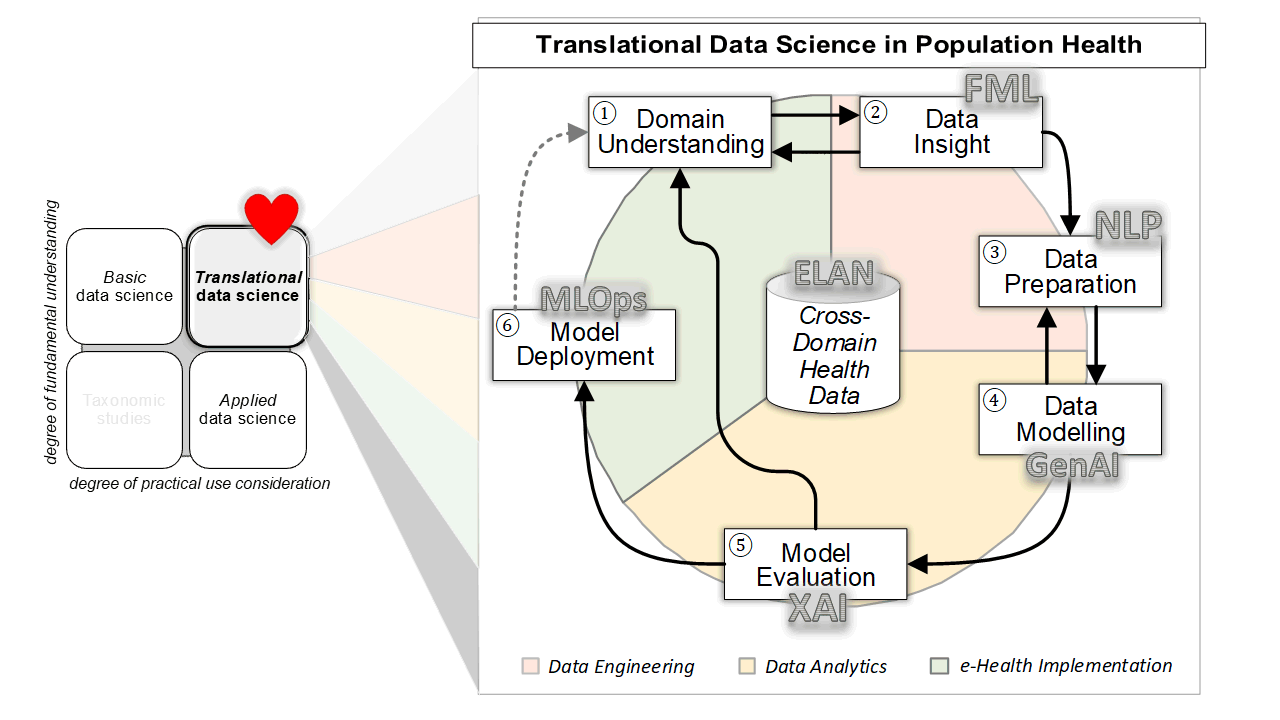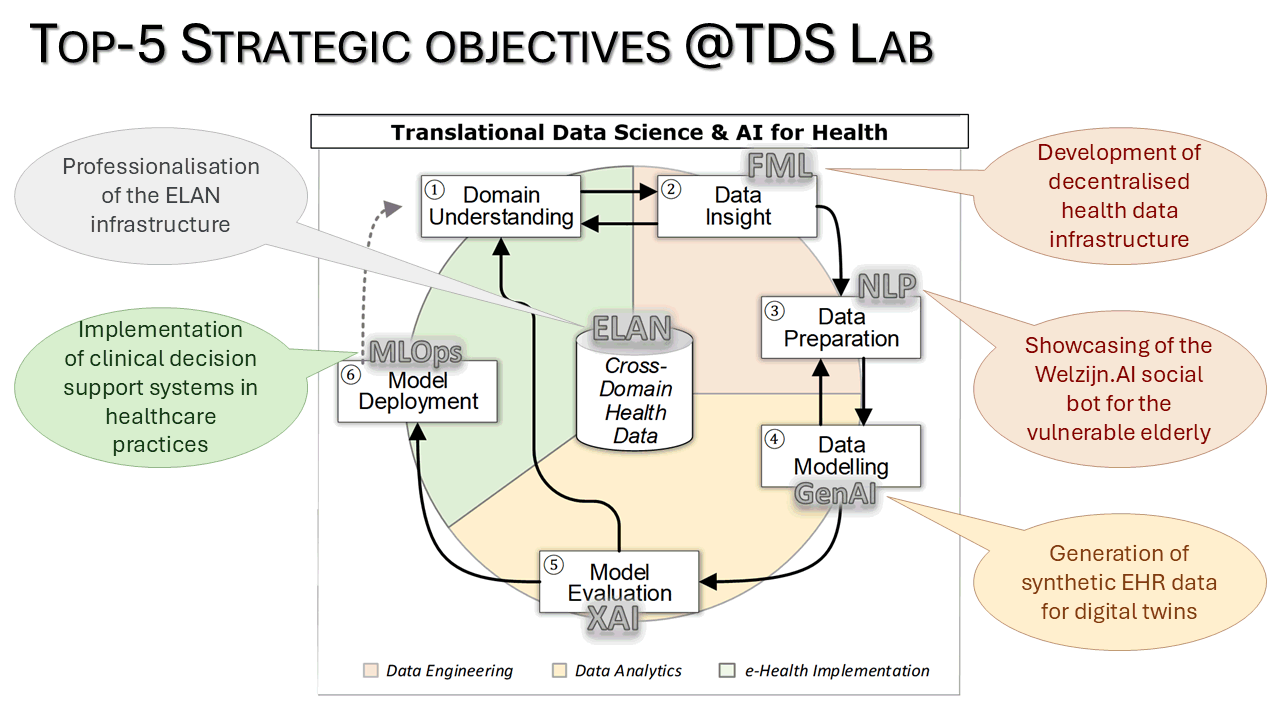About
The Translational Data Science & AI (TDS) Lab is headed by Prof.dr. Marco Spruit and is primarily located at the Health Campus The Hague within the LUMC department on the third floor around room 3.20a, but also has a BioScience Park Leiden office in the Gorlaeus building on the third floor in room BM3.01. We are an energetic and innovating team with an AI mindset that participates in many Dutch and European research projects and is actively involved in developing and teaching novel AI and machine learning course modules throughout the Leiden University Medical Center (LUMC).
Mission Statement
The TDS Lab's mission is to connect practical problems in healthcare practices to fundamental challenges in data science & AI and to subsequently address both simultaneously. This is our encompassing Translational Data Science & AI (TDS) research theme, which bridges the best of both worlds. Pasteur's Quadrant in Figure 1 below visualises our drive to achieve a better fundamental understanding of the world around us through data science & AI innovations by being societally inspired, demand-driven and solution-oriented.
Figure 1: Translational data science in Pasteur's Quadrant (on the left) combines basic data science understanding with applied data science use considerations.
Strategic objectives
- Establish an authoritative and open national infrastructure
for Dutch health research, education and care to accelerate innovation and to democratise
data science technologies through especially Natural Language Processing and Generative AI technologies, by
- [ELAN] Professionalising the ELAN infrastructure
- [FML] Developing federated learning techniques for EHR data
- [NLP] Showcasing the Welzijn.AI bot for the vulnerable elderly
- [GenAI] Generating synthetic EHR data for digital twins
- [MLOps] Deploying clinical decision support systems in healthcare practices
- Modernise education in Dutch healthcare for students and professionals with artificial intelligence and machine learning-focused modules
- Communicate our findings and working prototypes to a broader audience through embedded applications on the tdslab.nl website
Figure 2: Top-5 strategic objectives in the TDS Lab. [nl]

